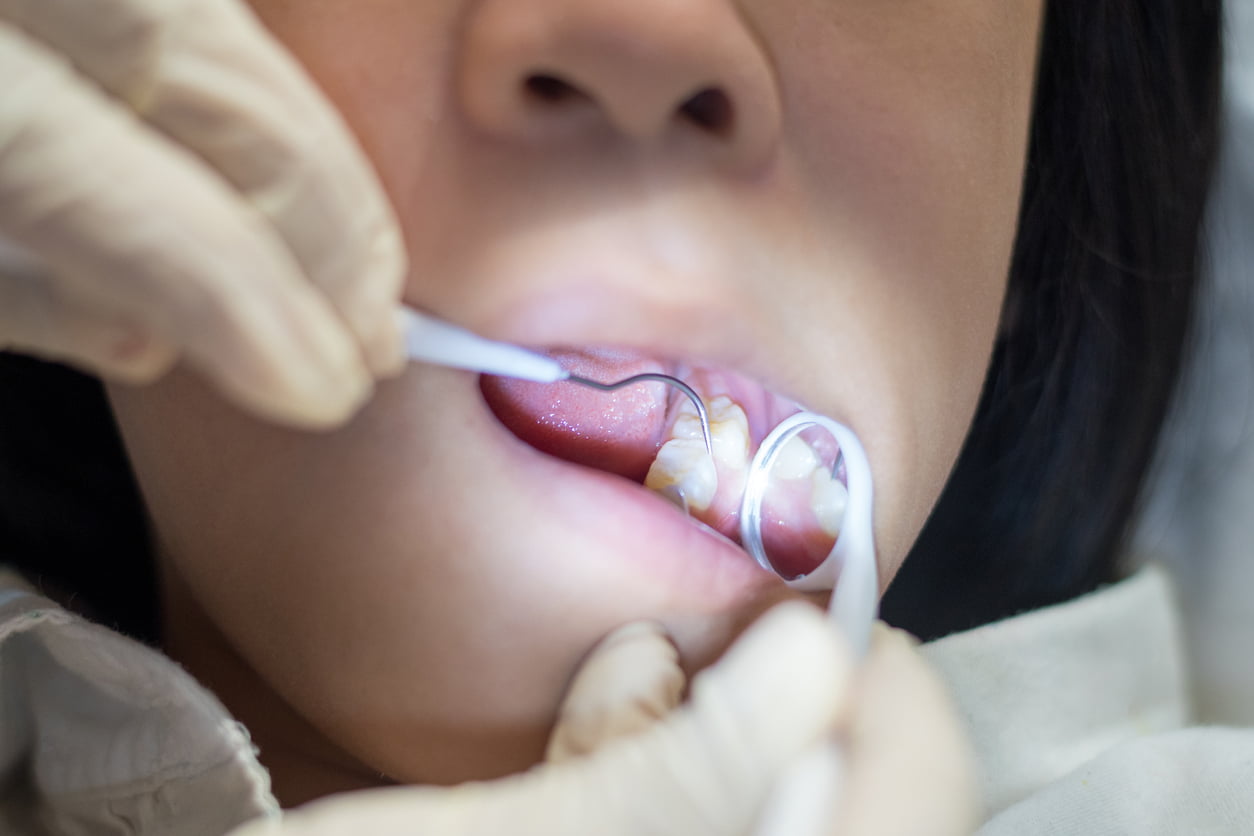Fissures are the thin grooves on the chewing surfaces of teeth. No matter how well they are brushed, bacteria can still collect within them and eventually cause decay. A fissure sealant is a safe plastic coating applied to the tooth to stop food particles and bacteria from settling in these hard-to-clean grooves.
book your consultation today

This preventive treatment is normally given to children whose permanent teeth are starting to emerge, usually between six and seven years. The application process is quick and easy, and there is no need for anaesthetic or drilling. Typically, fissure sealants are not used for adults, as restorative dental treatment is more effective when needed.
We polish your tooth to remove plaque and food debris from the fissure surfaces. It is then etched with a special solution to prepare for the sealant.
The solution is rinsed off and the tooth carefully dried. We then apply the sealant with a brush, coating the entire surface.
We use a curing light to harden the sealant and ensure it quickly bonds with the surface, forming a tough coating.
Many studies show sealants to be very effective in preventing decay in fissures. They do, however, require regular maintenance by your dentist. This can be performed with your six- monthly check-up. Recent studies show that a properly placed sealant will last as long as a typical amalgam filling. Even if a sealant is damaged or lost, it is easily repaired and replaced. Regular maintenance by your dentist will help them last. This can be done with your six-monthly check-up.
Sealants are most effective when applied after the eruption of the tooth. Early application ensures pits and fissures are sealed before the decay process begins.
Any tooth with pits and fissures can be treated, provided the surface to be filled is sound and has not been previously filled. The most commonly treated teeth are the molars and premolars. Your dentist will talk to you in further detail about the suitability of your teeth for fissure sealant treatment.
To ensure sealants offer the best protection, it is important they are used in conjunction with a comprehensive dental care routine that includes effective brushing, flossing and a healthy diet. Treated teeth will have smoother surfaces, so they will be much easier to keep clean. Sealants can last for many years, but regular check-ups are necessary to ensure they continue to remain intact.
We offer a warm welcome to all patients looking to benefit from our dynamic and professional dental care and wide range of treatment options. Our clean and spacious practice and welcoming team help you feel at ease from the moment your journey begins.
Please contact us to find out more - we’re looking forward to getting to know you and showing you what we can do.
Please note we are currently unable to accept any new NHS patients.
